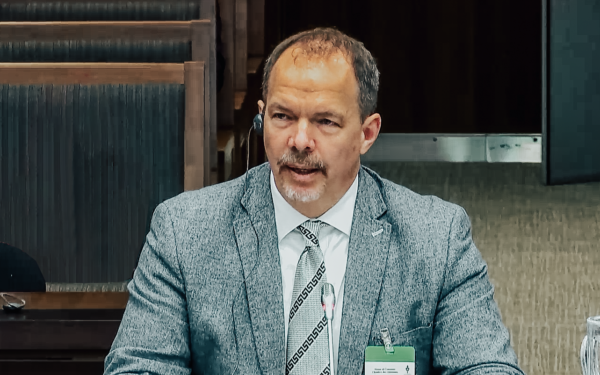We talked to the Mozilla Foundation about their approach to market-leading open source solutions, and what their success says about the future of an open Web.

The Mozilla Foundation received funding from the CIRA Community Investment Program to develop online web development tools for educators.
The project included a social coding event that brought together programmers and other members of the Internet community to improve or build new software.
This experience has fed into Mozilla’s larger goal of creating open source tools for those looking to build new skills and create new projects online.
A: We see the Web as a global public resource, that everyone should have a hand in shaping and protecting. Our philosophy influences what we make and how we make it. We build tools that empower Web users as digital citizens. For example, our new Webmaker app for Android allows smartphone users of any skill level to create original content in minutes. And Firefox allows users to take control of their privacy and security online.
Our philosophy has allowed the Mozilla community to grow beyond just core staff. If the Web belongs to everybody, so too should the tools and browsers we use everyday. Our products — from the Firefox browser to the Webmaker app for Android — are open source, so anyone anywhere can peek behind the curtain and make them better. There are over 30,000 volunteers contributing to the Mozilla project and doing just this. It’s our secret weapon. This community effort extends beyond products. Thousands of people are joining us in our work for universal web literacy. In 2014, just from our Maker Party Campaign alone, volunteers lead 2,513 events for 200,000 participants in 450 cities.
Q: I always find it fascinating that critical parts of the Internet are run by non-profit teams, volunteers, or community-based organizations. As a non-profit organization working in a sector that is now known for billion-dollar company valuations and high-profile tech IPOs, what unique perspective can Mozilla bring? Does your non-profit status help you innovate?
A: Unlike most of the marquee names in tech, Mozilla isn’t beholden to shareholders. This leaves us free to pursue a singular mission: protecting and improving the Web. We can dedicate ourselves entirely to our vision.
And being a nonprofit doesn’t mean lessened influence. Mozilla has garnered half-a-billion users globally, a market-transforming number. And our vision and status has attracted thousands of talented and passionate volunteers who share our commitment to an open Web. These volunteers localize tools, host educational events around the world and provide a global perspective. It’s an element for-profit companies lack.
Q: Mozilla is paying attention to the ways that people use technology – the digital skills and literacies that we need to create on the Web. I can see the value in helping Internet users understand they can be both creators and consumers. How does this goal of promoting digital literacy fit into our current technology climate? What is at stake here?
A: So much is at stake, the very openness of the Web. The world has largely solved problems like connectivity, but we’ve also learned that connectivity alone isn’t enough. In the next 10 years, two billion individuals will come online for the first time, many exclusively through their smartphones. But, unless we couple access with education, these users will discover a read-only Web. New users will be consumers, not creators, and live inside a small number of closed apps and platforms.
If we teach users how to move beyond consumption and toward creation, they can unlock the full potential of the Web. They will see tremendous economic and social opportunity. And when more people can actively participate on the Web, we’re cementing the Internet as a global public resource.
Q: There seems to be a growing cluster of social entrepreneurs in Canada who are working to build technology for social good. As a leader in this space, what is Mozilla’s assessment of the digital literacy and technology advocacy sector in Canada? What sort of support does the sector need to be successful?
A: It’s true that there is more tech for social good happening in Canada — but not nearly fast enough, in my opinion. We see groups, dozens of groups like MakerKids who work on digital literacy in Mozilla’s Hive Learning Canada in Toronto. And Open Media is out there working on Internet policy issues. But, frankly, Canada is still lagging behind the US and Europe in these areas. Our governments barely pay attention to digital literacy and we have passed legislation like C51 that would have created a much more massive uproar in other countries. We all need to be backing the groups working on these things in Canada. And, frankly, we all need to get more involved.
Ryan Saxby Hill is an expert in communications and digital marketing. He is served as the communications manager at CIRA from 2014-2017. Previously, Ryan led media relations and online engagement efforts at the Canada Foundation for Innovation and has held positions handling global communications and PR programs for Ciena Corporation and Nortel Networks.
Ryan is a founder of Apartment613, an award winning Ottawa-based digital community media organization and serves on the board of directors for the Centretown Citizens Ottawa Corporation, one of Canada’s most innovative non-profit housing providers.




